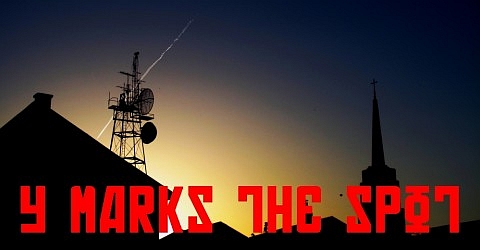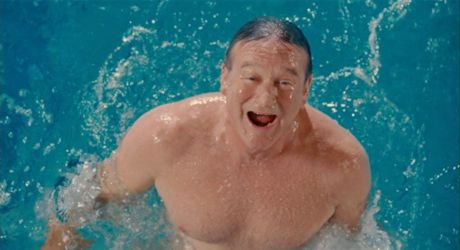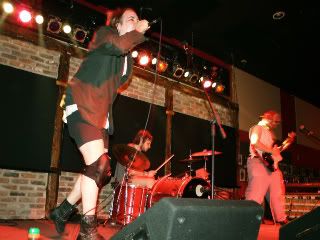Appropriately, I found out about Robin Williams’ death because of someone in a hole, six feet deep. I was on my porch, wasting my life on the internet, tuning out the neighbor across the street as he toiled in said pit and tried to fix a broken sewage pipe. Eventually, his roommate came out to the cratered boulevard and, in a voice loud enough for me to hear, announced that Robin Williams had died. My instincts to internet fact-check kicked in, confirmation was acquired, and I found myself staring at the pit and thinking holy shit. Even when in shock, my brain has an inane tendency toward wordplay.
My second thought was that World’s Greatest Dad, a movie in which Williams plays a father coping with his son’s accidental suicide, had just gained an evil sense of foreshadowing.
I’ll get back to that thought, but first: a disclaimer. My traditional position on the topic of public tragedy is that of a skeptic at best, an asshole at worst. As I’ve gotten older I’ve gained nuance and empathy, and I’ve lost a lot of my bullshit urges to posture as a cool and unaffected prick, but I’ve never stopped being paranoid over the whitewashing and exploitation of the dead. History is littered with religious, political, and philosophical figures who have been abused in this way, but there are also many current examples of people who in death were transformed into something other than who they were.
When Princess Diana and Mother Theresa both died in 1997, the nonstop public breast beating, calls for the instant canonization of both women, coupled with Elton John pillaging his back catalogue to provide the ubiquitous soundtrack, struck me as phoniness on a massive scale, ritual attention seeking that had little to do with either woman. When Columbine happened, all I took away from it at the time was that weird, trenchcoated kids like me were a public menace and, therefore, acceptable scapegoats. But my all time favorite whitewashing of the dead has to be Michael Jackson’s, a man who in the eyes of many was a creepy alleged pedophile the day before his death and an untouchable musical genius in the next. That dime turn in public perception and complete trade in of the flawed version of Jackson for the flawless has always disturbed me. It makes me dread what cinematic auteur and convicted kidfucker Roman Polanski’s image will look like once he belongs to the ages.
The public’s reaction to the death of Robin Williams, one day after the fact, feels different. Of course, the feeds are all overflowing with personal stories about how warm and brilliant he was, both as a person and a performer. I think that speaks volumes about his character, but I also kind of think that part of this very welcome change in tone between today’s tragedy and those of the somewhat recent past is due to where we are with technology. In 1997, the media pretty much controlled the mourning industry outright, running scripted, edited in memoriam pieces that felt like advertisements for the developing historical version of the deceased. If you wanted an off script eulogy, you had to know where to look or who to talk to.
Yesterday and today, I’ve been able to see a multitude of very real takes on Williams from my friends, from random people, and from public figures who were impacted by his death. The mourning didn’t feel external, induced or dictated by the press, but a conversation. People were able to share all the individual, personal reasons why his death was such a horrible thing, all of the performances they’ve loved of his, all the weird stories they had of him just showing up somewhere and being amazing.
And what I think has affected me most, the thing that I feel is most different, is that people aren’t shying away from his faults, either. His substance abuse problems are getting a fair place in the conversation without feeling like tabloid fodder that I always mentally connect with John Belushi and Chris Farley’s deaths. More importantly, the depression that likely ended his life is actually being talked about without much of the usual macho hyperindividualist delusions about how people can just force themselves to be sane which usually accompany conversations about mental illness and suicide (conservative pundits, as always, being the exception to this outpouring of empathy).
People are still talking about Robin Williams like a person.
Which brings me back to World’s Greatest Dad.
In this movie, Williams plays a frustrated writer who teaches at the same high school that his son attends. Everybody hates the kid, who is an asshole to everyone, but he soon accidentally hangs himself and dies. The moment when Williams discovers the son’s body, when his eyes focus and there’s no real change in his expression at first but he knows that his son is dead, is one of the purest distillations of real horror ‒ that moment before all the blood and guts and reaction when you see the monster and the monster sees you ‒ that I’ve ever seen in film.
What follows throws all that terrible reality away, and we see a complete whitewashing of the kid’s life, both by the dad and by everyone else in the school. The dad writes up a fake suicide note which changes his son’s status in school from living pariah to dead saint. People get tattoos of the kid, write poems about him, fight over oldies albums he reportedly listened to. Seizing the advantage, dad rides his son’s revisionist history to fame and fortune before Robin Williams gets naked and dives into a pool.
With hindsight, this movie may become the most haunting thing that Williams has ever done.
I’d have loved World’s Greatest Dad satire of professional grief in any event, but what makes this movie into one of my favorite Robin Williams flicks is that I first watched it the same week as my cousin died. My cousin was an asshole and a scumbag. The last time I saw him, he offered me coke, then started yelling at me for not staying in contact, then punched out one of my friends who was trying to rescue me from this trash vortex. After that, I made the conscious decision that I was never going to speak with him again. And I didn’t.
Five years later, he was dead. I still don’t know the cause, but I assume it was drug related and, if not overtly suicide, caused by enough amassed damage and depressed apathy to make little difference. When I found out, I felt almost nothing. No shock. No sadness. Maybe even a little bit of relief that he wouldn’t show up somewhere down the line and suck me into the quagmire of his ruined life.
I remember my cousin’s death entirely through the reference of World’s Greatest Dad. When I watched how Robin Williams’ character worked through the death of a similarly unsympathetic relative, it gave me a little nudge of solidarity. It made me feel a little less alienated or sociopathic because I didn’t feel all the expected death feelings and instead viewed my dead cousin as a person. Not an admirable person, not a particularly monstrous one, but simply someone who was there, and who didn’t mean that much to me. It wasn’t an overwhelming epiphany, the lesson I picked up from this movie, but it was something small and kind.
It’s okay to feel nothing. It’s okay to feel something. It’s okay to feel everything.
And now the shoe is on the other foot, and a person who helped me work out my feelings about real life death is dead, and now I feel some things completely different from indifference. I’m not overwhelmed or destroyed, but I do feel much the same way I felt when George Carlin and Rik Mayall died: kind of pissed, kind of sad for the people close to him, but largely grateful that this brilliant, imperfect person was able to make me laugh and help me figure out some of my shit ‒ sometimes at the same time, like when Rainbow Randolph screamed about his dick: “It’s small, but it’s fierce!”
And I’ll take one flawed genius over a hundred whitewashed saints.
Thank you, sir.


